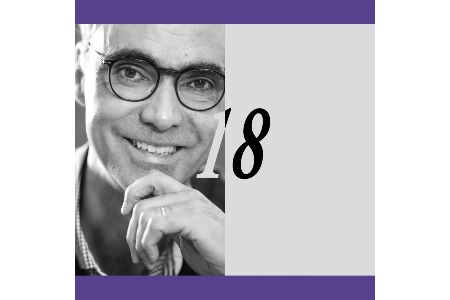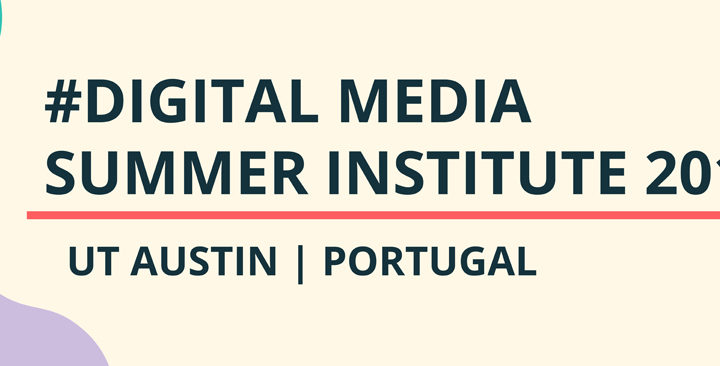The 18th Creativity Talk will be given by António Vicente, Professor at the University of Minho and a nationally and internationally renowned researcher for his immense scientific contribution in the fields of Biotechnology and Food Bioengineering. In the lecture “Future Foods – Foods for the Future”, we will discover how trends such as clean label, functional foods and alternative proteins, combined with technologies such as artificial intelligence and cellular agriculture, are transforming the way we eat and produce food.
An excellent opportunity to understand how we can improve the health of people and the planet, and be part of this change!
Online broadcast on 5 March at 17:30 on the Creativity Talks YouTube channel.
The moderator will be Prof. Cláudia Gomes Silva, from the Department of Chemical and Biological Engineering of the Faculdade de Engenharia da Universidade do Porto.
About the Talk:
“There has been a significant shift in the consumers’ preferences, acceptance and needs in the last ten years, which has been particularly strong in the last five years. The “top trends” are: Clean claims (e.g. preservatives free); Clean labels; Lifestyle enhancers (e.g. high energetic foods); Functional foods (e.g. with nutraceutical function); Minimally processed foods (e.g. using natural ingredients as much as possible) and the so-called “Green foods” (making use of the benefits of plants – e.g. replacement of animal protein by other protein sources).
Along with this shift, there are two major problems related with the food we eat: I) ensuring people’s food, health and wellbeing, and II) ensuring the health of our planet.
When answering to problem I), the future food needs to tackle malnutrition, reduce calorie density, reduce food digestibility, increase micronutrient bioavailability, control gut health, allow personalized nutrition and provide appropriate food for the elderly.
In order to answer to problem II), we need to make use a set of tools for the future: molecular biology, nanotechnology, artificial intelligence, robots & sensors, the so-called “Cellular agriculture” and search for alternative protein sources.
In this talk the latest developments made by our research group towards tackling some of these challenges are going to be presented, together with our vision on what still needs to be done and which partnerships are important to lead us to the future of foods, producing foods for the future.”
About the Speaker:
António Vicente graduated in Food Engineering from the Portuguese Catholic University in 1994, received his PhD in 1998 and did his Habilitation in 2010 in Chemical and Biological Engineering from the University of Minho. He is Professor in the Department of Biological Engineering, which he directed prior to his subsequent appointments as vice-Dean of the School of Engineering and Director of the Doctoral College of that University. Currently he serves as Dean of the School of Engineering.
António Vicente is a Senior Member and Specialist in Food Engineering by the Portuguese Engineers Association.
As a researcher, he has dedicated his work to the development of micro and nanotechnological systems for application in the Agrofood sector, to the evaluation of their behavior in dynamic in vitro digestion systems, and to the study of the influence of the application of electric fields in cells and biomolecules.
He has published >380 articles in international ISI WOS journals, >30 chapters in books of international circulation, >400 papers in congresses, 5 patents and edited 5 scientific books, yielding an h-index of 95. He won the Food and Nutrition Awards in 2015 and 2017 in the R&D category. During six years (2018, 2019, 2020, 2021, 2022 and 2023) he was distinguished as Highly Cited Researcher by Clarivate Analytics and in the last five years (2020, 2021, 2022, 2023 and 2024) he has integrated the list of the top 2 % most cited researchers according to the list published by Stanford University. In 2021 he was awarded the Scientific Merit Award from the University of Minho and the Diploma of Scientific Merit from the School of Engineering of the University of Minho yearly since 2021.


 José Colucci is the Director of Research & Development of the Design Institute for Health (DIH). Before joining the DIH, José was a Sr. Director and Associated Partner at IDEO, where he worked for 16 years, Vice-President of Research & Development of ITI, developer of high-resolution, pen-based computer interfaces in Canada; and prior to that, he was the General Manager of the Medical Engineering Division at FUNBEC – Brazil’s largest manufacturer of medical electronics for cardiology.
José Colucci is the Director of Research & Development of the Design Institute for Health (DIH). Before joining the DIH, José was a Sr. Director and Associated Partner at IDEO, where he worked for 16 years, Vice-President of Research & Development of ITI, developer of high-resolution, pen-based computer interfaces in Canada; and prior to that, he was the General Manager of the Medical Engineering Division at FUNBEC – Brazil’s largest manufacturer of medical electronics for cardiology.